Grammar can be tricky, but mastering the basics significantly improves your writing clarity and professionalism. Even small errors can detract from your message, leaving a less-than-polished impression. This guide highlights 15 common grammar pitfalls and offers easy-to-understand explanations and actionable advice.
We’ll cover everything from subject-verb agreement and comma splices to misused words and punctuation problems. By understanding these mistakes and implementing the provided solutions, you can confidently craft clear, concise, and error-free communication in any context – emails, reports, essays, or social media posts.
Let’s dive into these common grammar mistakes and learn how to conquer them! Each point includes practical examples and tips to ensure you understand the concepts clearly and can immediately apply them to your writing.
-
Subject-Verb Agreement
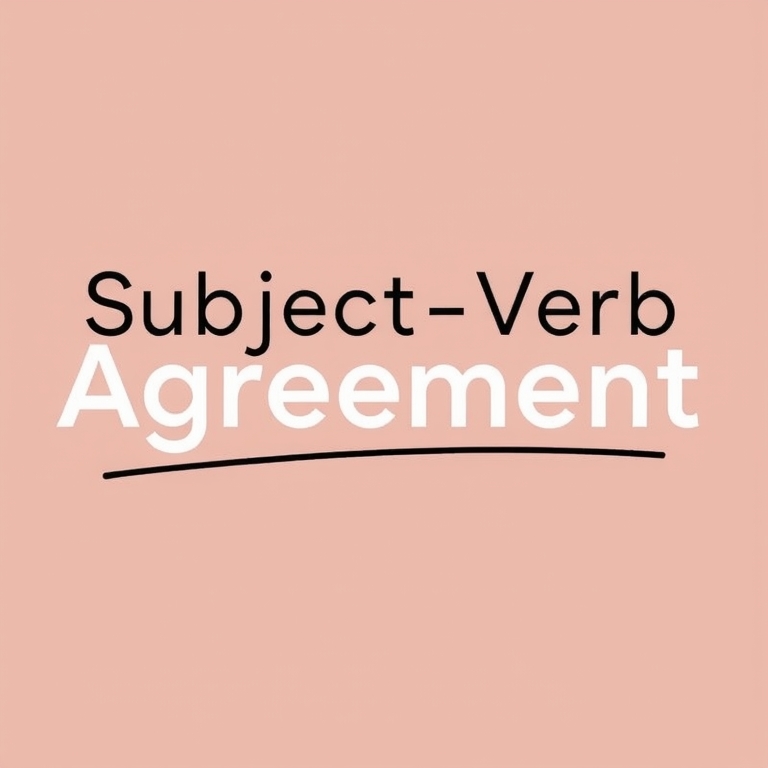
Subject-Verb Agreement Subject-verb agreement means the verb in a sentence must agree in number (singular or plural) with its subject. A singular subject takes a singular verb, and a plural subject takes a plural verb. This seems simple, but many errors arise from intervening phrases or unusual sentence structures.
Collective nouns like ‘team’ or ‘family’ can be tricky. They’re usually singular unless the individuals within the group are acting separately. For example, ‘The team is winning’ is correct, but ‘The team are arguing amongst themselves’ is also valid.
Words like ‘everyone,’ ‘anyone,’ ‘someone,’ and ‘no one’ are always singular and take singular verbs. Don’t be misled by the plural sense implied; the correct usage is always singular. For example, ‘Everyone is going to the party.’
Phrases like ‘along with,’ ‘as well as,’ and ‘in addition to’ don’t change the number of the subject. The subject remains singular even with these additions. For example, ‘The cat, along with the kittens, is sleeping soundly.’
-
Comma Splices

Comma Splices Don’t join two independent clauses with only a comma. Use a semicolon, a conjunction (and, but, or), or separate them into two sentences.
Incorrect: The movie was long, I fell asleep. Correct: The movie was long; I fell asleep. Or: The movie was long, so I fell asleep.
Tip: Use a comma followed by a coordinating conjunction to correctly join independent clauses. Learn to recognize independent clauses—they stand alone as complete sentences.
-
Pronoun Agreement
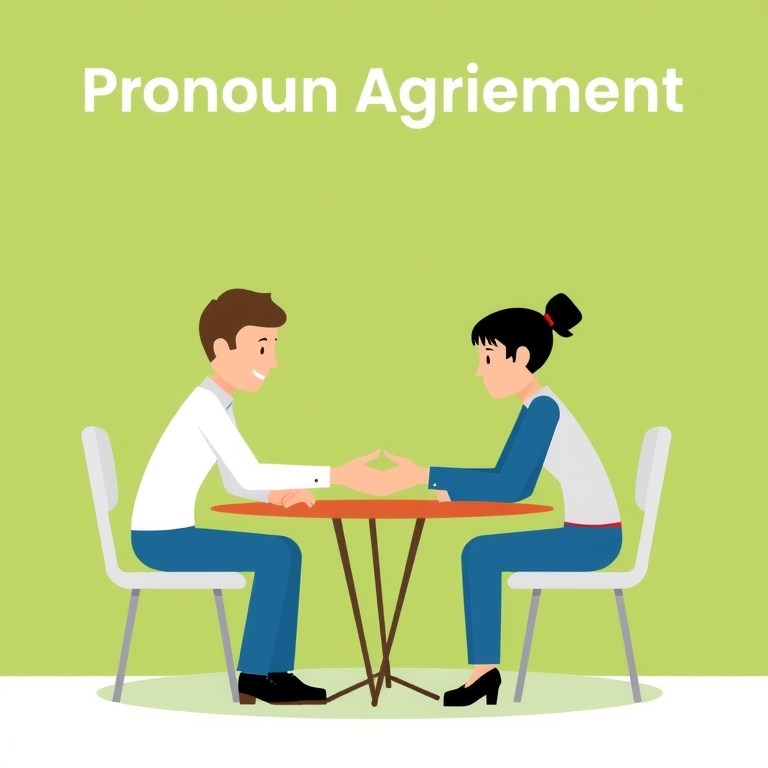
Pronoun Agreement Pronouns must agree with their antecedents in number and gender. Singular antecedents require singular pronouns; plural require plural.
Incorrect: Each student must bring their own book. Correct: Each student must bring his or her own book (or the more inclusive ‘their’ if acceptable in your style guide).
Tip: Check the antecedent of every pronoun to ensure it is unambiguous and correctly matched in number and gender.
-
Misplaced Modifiers

Misplaced Modifiers Place descriptive phrases as close as possible to the words they modify to avoid ambiguity.
Incorrect: Walking down the street, the car sped by. Correct: As I walked down the street, the car sped by. Or: The car sped by as I walked down the street.
Tip: Re-read your sentences, paying close attention to modifier placement to see if the meaning is clear.
-
Dangling Modifiers
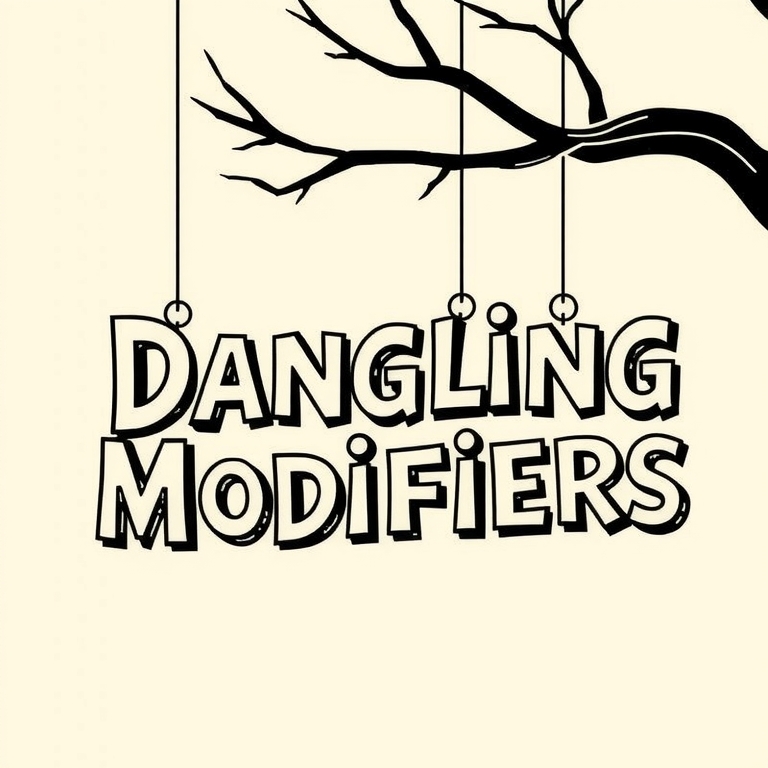
Dangling Modifiers Ensure your introductory phrase clearly modifies the subject of the sentence.
Incorrect: After finishing the race, the medal felt heavy. Correct: After finishing the race, I felt the medal was heavy.
Tip: Always ask yourself ‘What is being modified?’ when using an introductory phrase.
-
Run-on Sentences
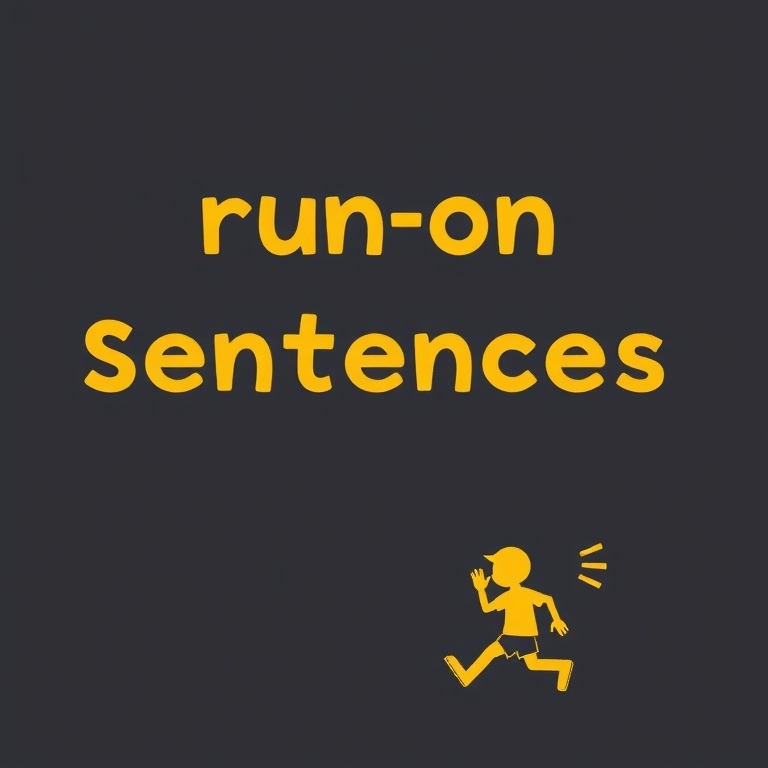
Run-on Sentences Avoid overly long and complex sentences. Break them into shorter, clearer sentences.
Incorrect: The dog ran into the street, chasing a squirrel, narrowly avoiding a collision with a car, and then promptly returning home, exhausted.
Tip: Use periods and conjunctions more often to create clear and concise sentences.
-
Sentence Fragments

Sentence Fragments Each sentence must contain a subject and a verb and express a complete thought.
Incorrect: Because it was raining. Correct: Because it was raining, the game was cancelled.
Tip: Read each sentence independently. Does it make complete sense on its own?
-
Incorrect Tense

Incorrect Tense Maintain consistent verb tense throughout your writing unless there’s a reason to change it.
Incorrect: I went to the store, and then I buy milk. Correct: I went to the store, and then I bought milk.
Tip: Decide which tense (past, present, future) is appropriate and stick with it unless necessary to shift the time frame.
-
Apostrophe Errors
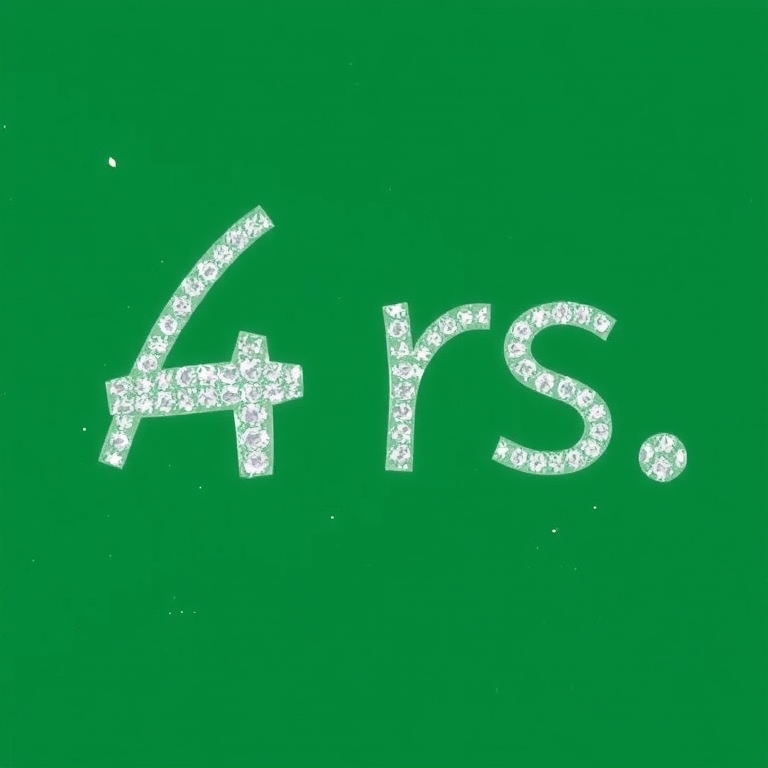
Apostrophe Errors Use apostrophes to show possession (the cat’s toy) and contractions (can’t, isn’t).
Incorrect: The dogs toys were everywhere. Correct: The dogs’ toys were everywhere.
Tip: Remember that plural nouns usually don’t need an apostrophe to indicate possession (unless they are irregular plurals).
-
Its vs. It's

Its vs. It's ‘Its’ shows possession; ‘it’s’ is a contraction of ‘it is’ or ‘it has’.
Incorrect: It’s tail was wagging. Correct: Its tail was wagging.
Tip: If you can substitute ‘it is’ or ‘it has,’ use ‘it’s’. Otherwise, use ‘its’.
-
Their, There, and They're

Their, There, and They're These words are easily confused but have distinct meanings: ‘their’ (possessive), ‘there’ (place), ‘they’re’ (contraction of ‘they are’).
Incorrect: They’re going over their to get there. Correct: They’re going over there to get their things.
Tip: Memorize the differences in meaning; each one serves a specific grammatical function.
-
Your vs. You're

Your vs. You're ‘Your’ shows possession; ‘you’re’ is a contraction of ‘you are’.
Incorrect: You’re going to loose your keys. Correct: You’re going to lose your keys.
Tip: Same as ‘its’ vs. ‘it’s’—substitute ‘you are’ to check if it fits.
-
To, Too, and Two

To, Too, and Two ‘To’ indicates direction or purpose; ‘too’ means ‘also’ or ‘excessively’; ‘two’ is the number 2.
Incorrect: To much to soon. Correct: Too much too soon.
Tip: Use context clues to determine which word makes sense in the sentence.
-
Affect vs. Effect
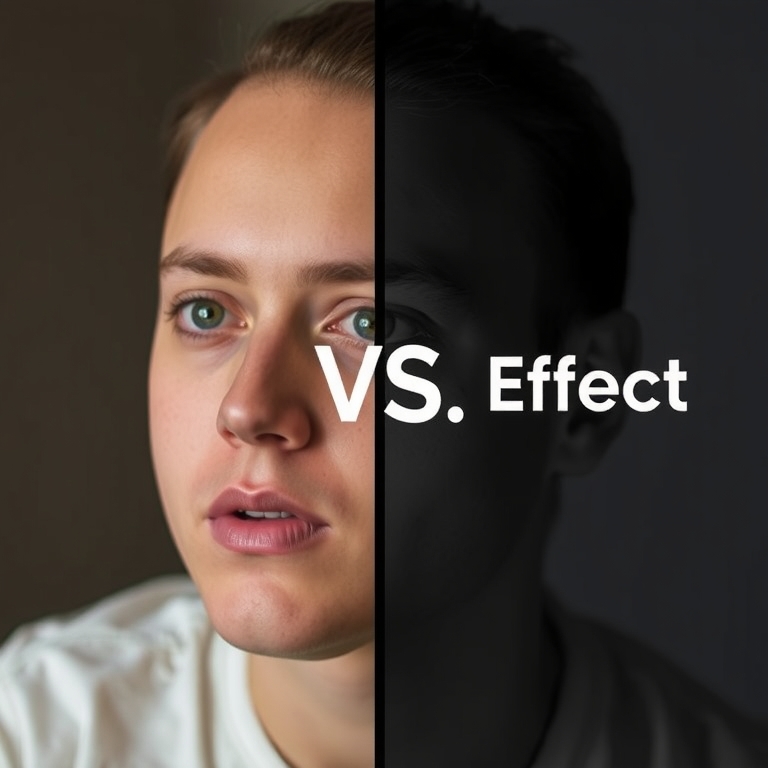
Affect vs. Effect ‘Affect’ is usually a verb (to influence); ‘effect’ is usually a noun (result).
Incorrect: The weather effected my mood. Correct: The weather affected my mood.
Tip: Remember ‘affect’ is a verb and ‘effect’ is usually a noun. There are exceptions, but this rule helps most of the time.
-
Then vs. Than
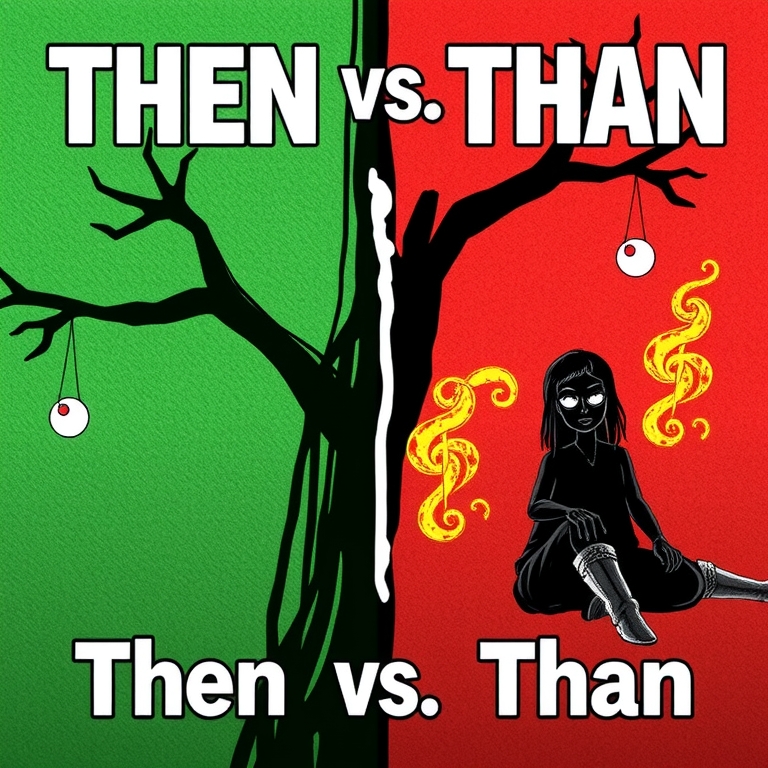
Then vs. Than ‘Then’ shows time sequence; ‘than’ shows comparison.
Incorrect: I went to the store then to the library. Correct: I went to the store, and then to the library.
Tip: Use ‘then’ for time and ‘than’ for comparison.
Editor’s Recommendations
- Use a grammar checker (Grammarly, ProWritingAid).
- Read your work aloud before submitting.
- Get feedback from a peer or editor.
Conclusion
Mastering grammar takes practice, but the payoff is significant. By diligently avoiding these common mistakes, you’ll improve the clarity, professionalism, and overall impact of your writing.
Remember, consistency and attention to detail are crucial. Regularly review this list, and gradually, you’ll become more adept at recognizing and correcting grammatical errors in your own work.
Don’t be afraid to use grammar tools or seek feedback. Consistent effort is key to improving your grammar skills.
